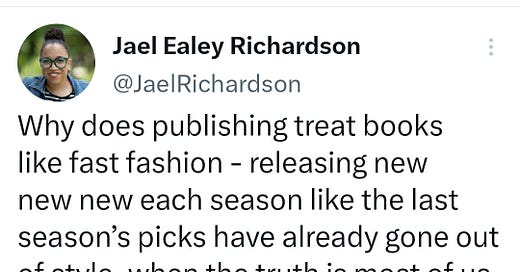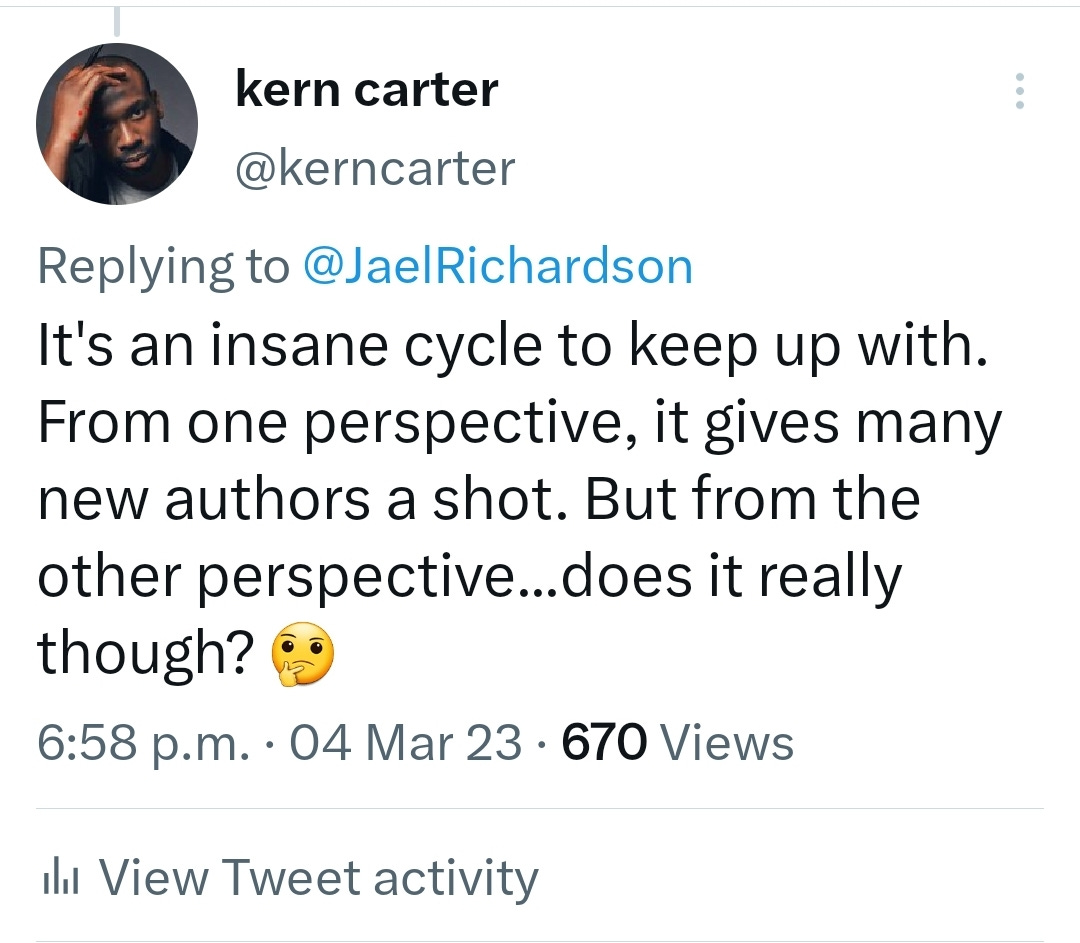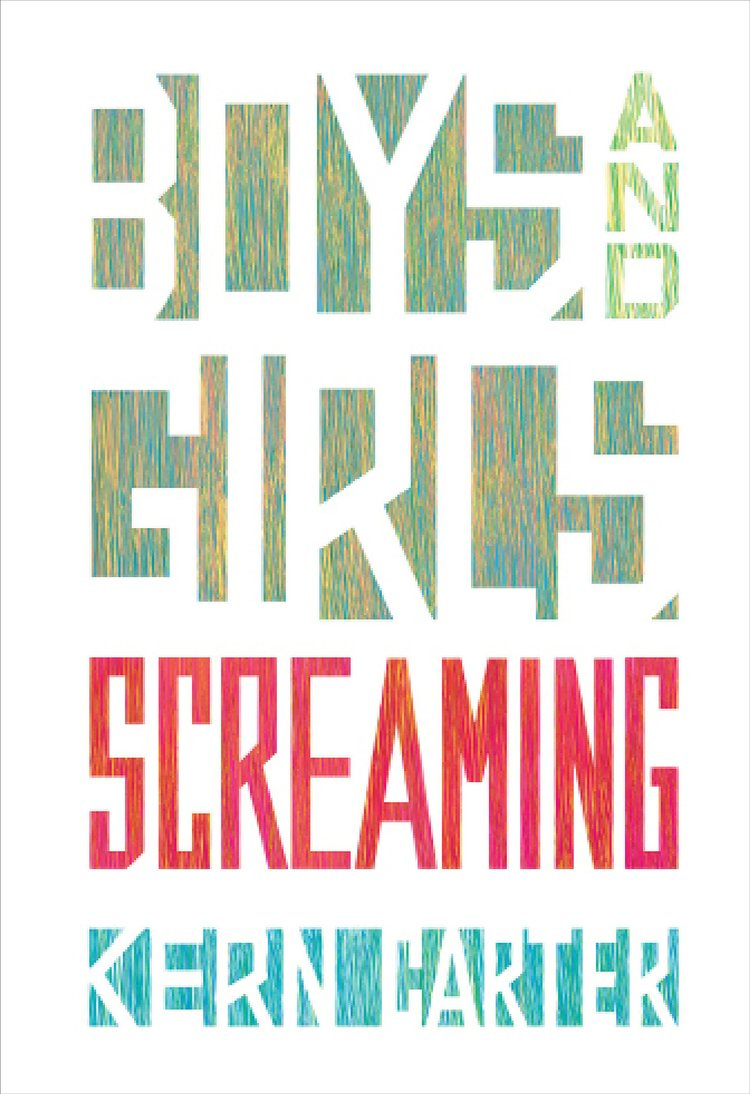Last night, I saw this tweet by Jael Richardson, who runs a literary festival in Canada called FOLD.
This tweet made me think of an interview I saw years ago with Jay Z when he was the President at Def Jam. He basically said that he wanted to slow down the number of releases each year. Def Jam was releasing about 70 albums a year and Jay Z said there was no way you could release that many “good” albums in one year.
My response to Jael’s tweet seemed to also get some attention:
Does it really, though? That’s the question I want to discuss today. Does releasing hundreds of titles a year give an author the best shot at success? And what would it look like if publishers cut down on the number of titles they released?
How many books do big publishers publish every year?
This is where we need to start. When we talk about publishers putting out too many books, what exactly does too many mean? Since Penguin Random House (PRH) is the largest book publisher in the world. Let’s use them as a proxy.
The UK division of PRH publishes 1,500 titles a year. Penguin Canada publishes about 500 titles a year. But if you count all the imprints that are under the PRH umbrella, they publish over 15,000 titles each and every year.
The good and the bad
That’s a lot of books. It’s also a lot of authors getting the opportunity for their stories to be read. And all of these authors are getting some kind of advance, so that’s a large number of authors getting paid. That can’t be a bad thing, right?
And it’s not like the 15,000 titles being released are controlled by one team. These books are being released by imprints made up of their own editors and marketing teams whose mission is to sell as many books as possible. And with me currently working with editors from large publishers (I’m signed to PRH and Scholastic), I can tell you firsthand that these editors really do care. They care a lot and want your book to be the best version of itself.
But that’s the dilemma, isn’t it? Editors are tasked with nurturing the authors they’ve already signed while actively searching for the next big hit. The marketing teams need to execute sales strategies for multiple titles while preparing for another launch, then another, and another.
But is any of this working?
If you paid attention to the PRH / Simon & Schuster case, you would’ve heard the claim that 50% of titles don’t sell more than a dozen books a year. While that stat isn’t exactly as catastrophic as it may seem (it’s far more nuanced than a single stat), it does give you an idea of the level of failure that publishers are encountering with each release.
Is it possible to be your most creative as an editor when your attention is diverted among all of the books you have coming out this season? When you have manuscripts from agents sitting in your inbox and they give you two weeks to complete reading it because they’ve submitted to multiple publishers and already have an offer on the table?
Can marketing teams be their most creative when there are dozens of releases occurring simultaneously? Can they truly identify an audience for the book, build a curated campaign that speaks to that audience, then iterate when they receive initial data?
Patricia Ocampo of Kids Can Press was recently quoted as saying marketing plans, “are not going to be very creative.” Her answer was in response to how marketing plans are actually more important than how much money authors make on their advance. But because advances are prioritized (in the mind of an author), they often don’t think about what it would take to get their book into the hands of readers.
What if publishers did things differently?
What would the publishing industry look like if they vastly cut the number of titles they released each year? What if PRH went from 15,000 to 5,000? Would that make a difference?
I think about indie publishers. These are smaller presses typically releasing a number of titles that is manageable. Do their authors sell more books? Maybe that’s not a fair comparison. Indies don’t have the same resources that larger publishers do. But not having the same access to resources doesn’t mean they have no resources. And because they are putting out a manageable number of titles, they technically should have more space to be creative with each release. And that should lead to more sales, right?
Let’s get back to the major publishers, though. If PRH or any of the big five cut their releases to a third of what they currently do now, would that increase the number of titles that sell well? And by selling well, I mean enough for the author to make a living.
My general thought is that a higher percentage of books would do better. I think it’s fair to deduce that if a publisher is able to give a title their full attention, that title would likely sell more copies. But in saying this, I’m still a bit hesitant to fully accept that cutting the number of titles on its own would dramatically change the industry.
It would depend on if publishers allocate those funds intelligently. Are marketing teams given larger budgets? Are they given more time to build and nurture an author’s career rather than organizing book launches and a few interviews for the first few months after a release? Or is the goal still to sell 10,000 books in the first week and every week after that? And if that goal isn’t reached in the first three months, then it’s on to the next author and title.
I also wonder how this would impact editors. Would their workload be reduced enough to free up the mental space they need to function at their best? Can they sit with books long enough to challenge authors? Explore different approaches to storytelling? Or would they still be spending their evenings and weekends reading new manuscripts?
I ask these questions in conjunction because it’s doubtful that one change would completely disrupt a system that’s been pretty much the same since its inception. But if that one change acts as a domino cascading through other parts of the industry, then we’d be on to something.
I’m working on another piece that discusses how the establishment and diversification of platforms for authors could solve some of these issues. Look out for that one coming soon. In the meantime, publishing will continue pumping out books at its current pace and probably increase that pace with the success of the past two years. I wouldn’t necessarily call it “fast fashion” because readers have a different type of appreciation for books, physical books in particular. But adjusting the pace of releases is an interesting thought.








Yes, Kern. I think commercial publishers are gatekeepers and necessary ones but there's a self-imposed censorship if we just allow the commercial publishers ( i.e., capital) to only offer us their selections. I am thrilled at the explosion of blogs and e-zines that are flourishing offering writers of all sorts an opportunity to find readers. I think the array of digital writing platforms offers readers a greater variety than what commercial publishers deem "readable."
Books are different from other commodified "products". Books are about choice among readers. I, as a reader, don't care if PRH is making a huge profit or not. They happen to the gatekeepers by their infrastructure clout. I care about different voices being heard and a space where that is possible. So, it's not important to listen to every album or read every book but I don't want capital to determine what I can read or hear.